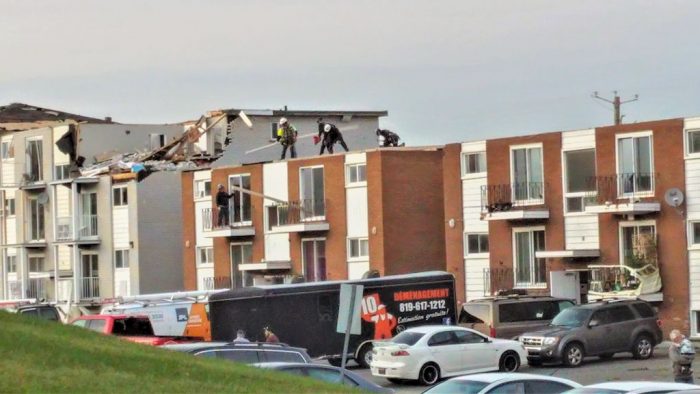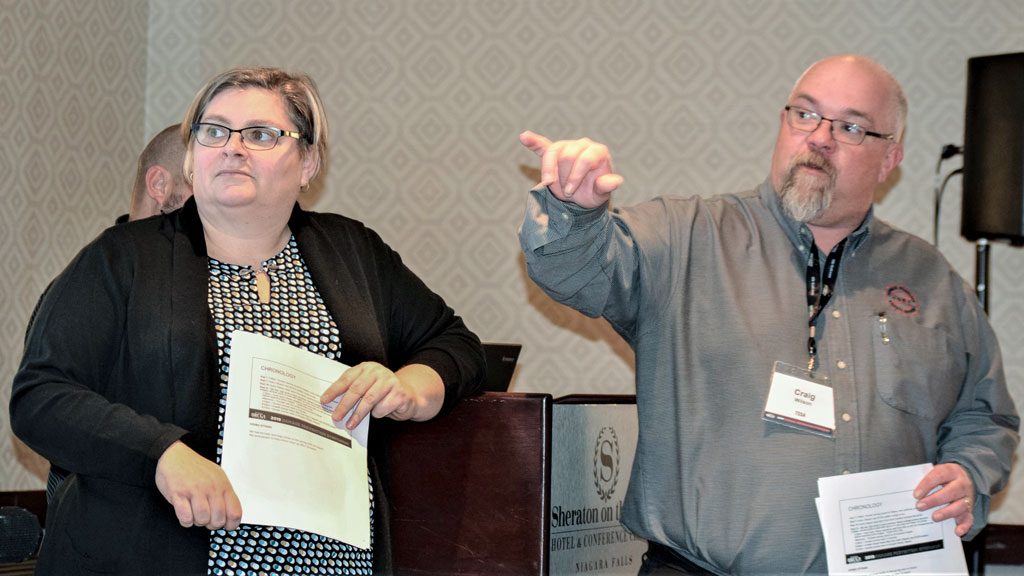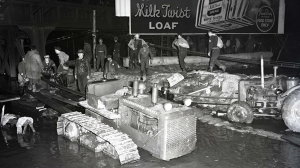Ottawa utility professionals united to devise emergency locate and repair plans, marshalled resources, clamped down on well-intentioned but dangerous repair amateurs and occasionally provided shoulders to cry on in the hours and days after the region was hit by three tornados Sept. 21, 2018.
Addressing a seminar audience attending the Ontario Regional Common Ground Alliance Damage Prevention Symposium in Niagara Falls, Ont. on Feb. 14, representatives of Hydro Ottawa, Enbridge and the Technical Standards and Safety Authority (TSSA) offered an account of how the tornados wreaked extensive damage and how utilities infrastructure teams responded to not only undertake repairs but also prevent citizens, contractors and rubberneckers from getting hurt.
In the end, the tally was zero injuries generated during the repairs phase, a notable accomplishment, said Margaret DeFazio, supervisor of distribution operations with Hydro Ottawa.
“I think that the response was very successful from the perspective that we are not aware of any injuries due to damages due to this event,” she explained in an interview after the presentation.
“The people who were on the ground recognized the hazards right away and jumped up and engaged other people to create this larger response.”
Around noon Sept. 21, fierce storms were predicted in the Ottawa region with electrical outages thought possible, DeFazio explained in laying out an event timetable.
By 3 p.m. the regular shifts of most Hydro One workers ended but managers and on-call staff hung around, following regular storm alert protocol.
Around this time Environment Canada issued a tornado warning.

At 5 p.m., a category EF-3 twister touched down in Dunrobin, east of Ottawa, with winds thought to reach 265 kilometres per hour. Approximately 25 people were injured. At 6 p.m., another tornado, categorized as an EF-2, hit Arlington Woods in nearby Nepean. A third tornado, causing relatively minimal damage, was later confirmed, and another report suggested six in total hit the Ottawa-Gatineau region.
That evening, the region’s utilities operators connected to discuss initial actions amidst reports of massive power outages. Thirty-plus hydro poles lay on the ground, with live wires a serious concern, and another 15 broken and hanging poles adding to the danger.
It was obvious typical locate rules, which call for routine locates within five business days and urgent locates within two to 24 hours, would fall by the wayside.
“In this situation with the public safety hazards that were present, the utilities determined among ourselves that because of the amount of repairs that had to be done immediately to make a safe environment for people doing cleanup and repairs and walking down the street, we would provide locates immediately and for everyone’s use,” DeFazio explained.
“That night, right after the tornado, we recognized the extent of the damage to our infrastructure. Because of that, we knew that our locate company would expect historic volumes of emergency locates that they staff for, typical volumes of emergency staffing, but this was an abnormal situation, so we wanted them to have the heads up. ‘You won’t need two people on call to do locates, you will need 10,’ ” DeFazio said.
It turned out 171,462 of 331,777 Hydro Ottawa customers had lost power, 52 per cent.
As for Enbridge, there were 300 active natural gas leaks that had to be dealt with.
And then there were the thousands of homeowners, contractors and volunteers who set about taking care of fallen and dangling trees, broken fences, wrecked homes and exposed tree roots. Every root dragged out of the ground might be intertwined with a gas line, noted Chad Loveland, damage prevention inspector with Enbridge, and so for the utilities teams, the recovery included significant onsite public awareness efforts.
“People started removing trees and stumps right away, not thinking about the locates,” he said.
Commented Craig Wilson, TSSA fuels safety inspector, “We had people going up to people’s doors, knocking, ‘We noticed you have some damage, we’ll tell you how to deal with it safely.’ ”
Crews were out all night and for two days after the event, Loveland said, adding, “Sixty-seven poles replaced in three days, that’s a lot of locating.”
At times, workers became grief counsellors.
“I was talking to people, they were standing on their front porch balling their eyes out,” DeFazio said.
Then there was dealing with the “weekend warriors,” DeFazio said, would-be volunteers who in some cases needed to be weeded out if their skills were found wanting. A case in point — her own father showed up with a chainsaw he had not used in 10 years, she said.
The presentation included a lessons-learned section. Among them: a focus on regular safety procedures produced results, with no significant injuries; allow process deviations, such as with locates procedures, but only if safety remains at the forefront; public education can bring results but enforcement lessons must be balanced by compassion; engage contractors as early as possible; and expect that logistics and resources will be stretched, so think ahead to ensure there is catering to feed the workers and even gasoline available to keep the vehicles running.











Recent Comments
comments for this post are closed